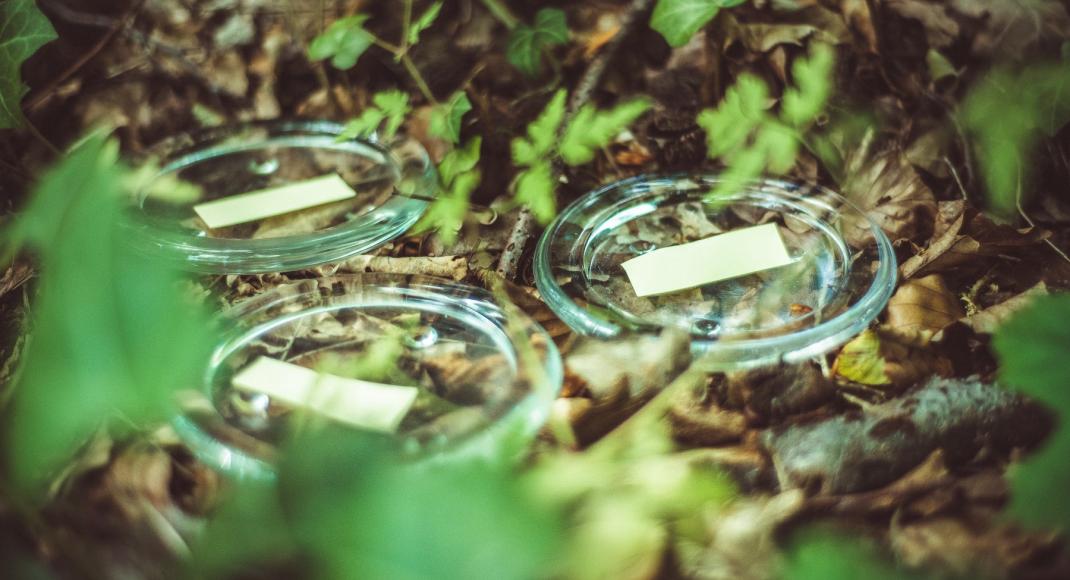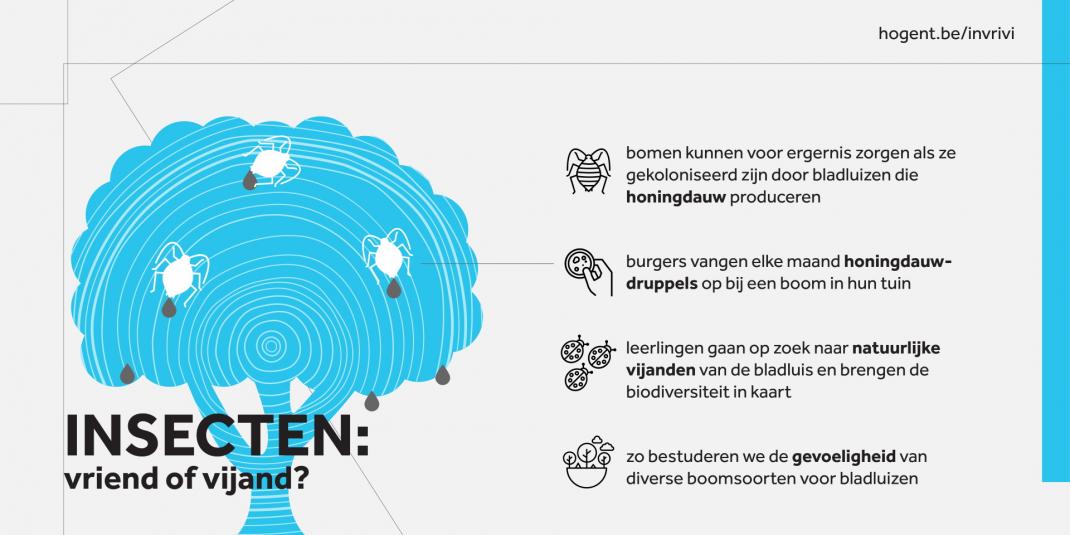Insecten: vriend of vijand? (Insects: friend or foe?)
Have you ever parked your bike or car beneath a tree, and when you returned your bike seat or windshield was sticky? This is honeydew, the sticky substance secreted by aphids. Not every tree is susceptible to aphids. By collecting and analysing honeydew drops, citizens and scientists together can examine the susceptibility of various trees to aphids.

Trees are an important source of biodiversity in urban areas. But trees are also often cause annoyance, when aphids secrete honeydew in them. There is a need for more knowledge about controlling the aphid population in trees, and about natural pest control instead of insecticide use. This project studies both the susceptibility of various types of trees to aphids, and the effects of location of trees on that susceptibility.
To study these effects, the researchers need large quantities of data. This wouldn't be possible without the help of citizens. The project is also beneficial for citizens; they are educated about aphids and learn that most insects are very useful to nature. The project also aims to convince volunteers of the beneficial effects of using natural pest control and crop protection over the use of harmful chemicals.
In the project, citizens follow up one tree in their garden by monthly collections of honey dew on water sensitive paper. They place dishes with these papers in four segments under the tree, one for every cardinal direction. The strokes of paper are removed after two hours, the dots of honey dew counted and photographed. The collected data are sent to the researchers by email. The citizens also fill out a questionnaire about their tree. There are regional meet-ups where volunteers can gather, are informed and educated and get feedback. All data is then collected and analysed by the research team.
Pupils can participate in INVRIVI@School, the educational section of the project. During two weeks, schools can use STEM packages (for primary and secondary school) for free. They look for insects in the school yard, the park or a strip of nature in the neighbourhood of the school. The insects are caught and determined. Secondary schools can also calculate their biodiversity index. These data are filled out on the project website, where schools can compare their scores with other schools. The researchers also organise teach-the-teacher sessions.

